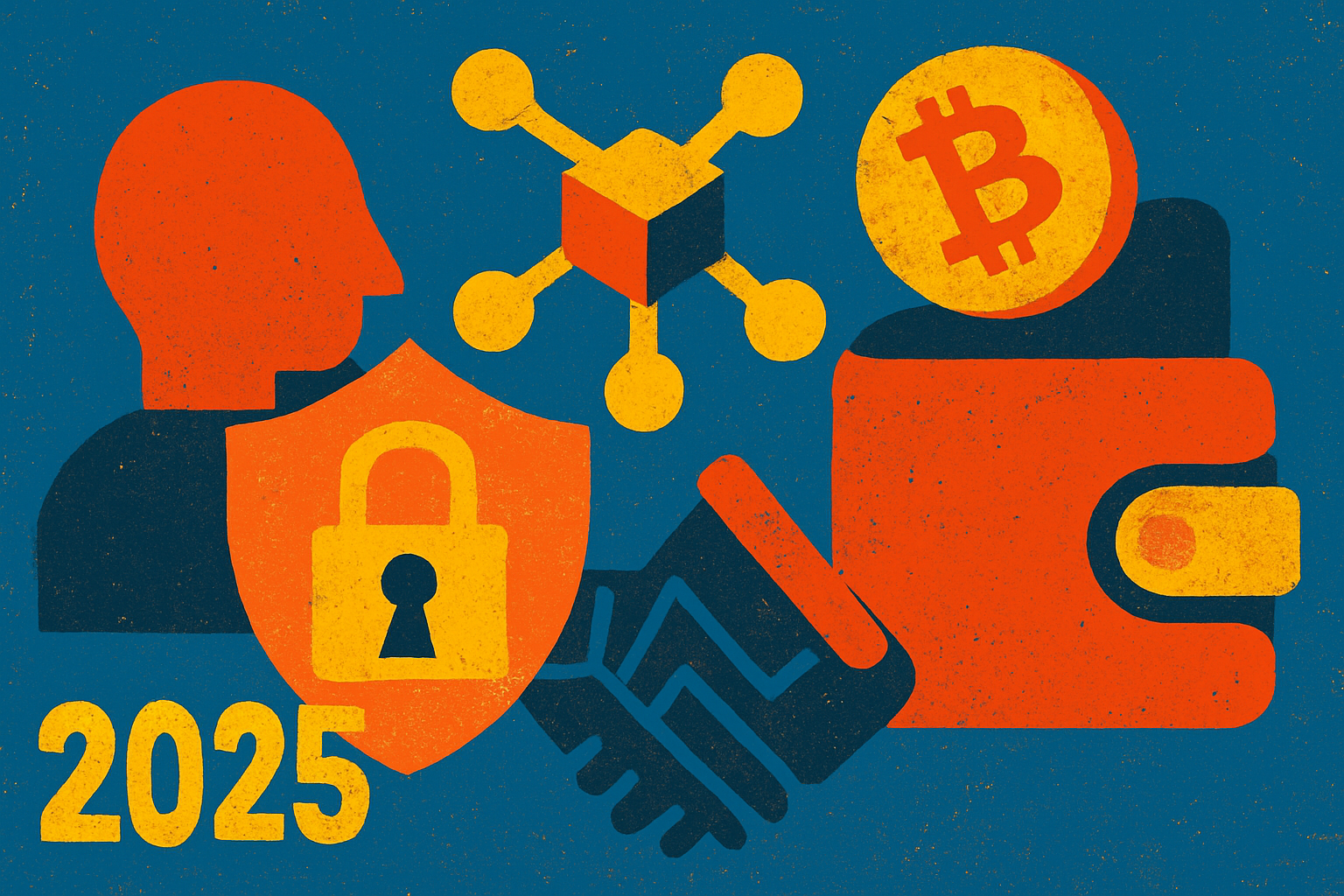
In 2025, the identity landscape for Web3 is undergoing a seismic shift. The idOS Network is at the forefront, enabling users to complete Know Your Customer (KYC) verification once and reuse those credentials across a growing ecosystem of decentralized applications, stablecoin platforms, and DeFi protocols. This approach addresses long-standing pain points in digital onboarding – namely repetitive KYC checks and fragmented identity management – while putting control back in the hands of individuals.

Decentralized Identity Wallets: The Foundation for Reusable KYC
The core innovation behind idOS Network’s reusable KYC lies in its use of decentralized identity wallets. These wallets serve as secure containers for personal credentials, allowing users to manage their digital identities independently of any single platform or service provider. By leveraging decentralized storage, each user’s data is encrypted and stored under their own authority. Access to this data is strictly permissioned: users decide which apps or services can view or use their credentials.
This self-custodial model aligns with the principles of self-sovereign identity (SSI), where individuals own and control their digital presence without reliance on centralized databases that are prone to breaches and misuse. As regulatory scrutiny increases worldwide, platforms adopting idOS’s architecture can demonstrate compliance while respecting user privacy, a critical balance for the future of digital finance.
How idOS Makes KYC Portable: Passporting and Data Ingestion
idOS Network introduces two primary mechanisms for making KYC portable:
- Passporting: When a user completes KYC with one regulated entity, other AML-obliged entities can trust that verification, provided legal requirements are met. This eliminates redundant checks and streamlines onboarding across compliant platforms.
- Data Ingestion: In cases where passporting isn’t feasible due to jurisdictional or regulatory differences, users can share a pre-verified KYC data package directly with another service provider. While the recipient may need to conduct additional verification steps, this process drastically reduces friction compared to traditional methods that require resubmitting documents repeatedly.
The result is a system where users verify once and transact everywhere, aligning with both compliance mandates and user-centric design philosophies.
MPC Technology: Raising the Bar for Security and Privacy
A cornerstone of idOS’s security model is its integration of Multi-Party Computation (MPC), developed in partnership with Partisia Blockchain. MPC splits private key computations among several independent parties so that no single participant ever has access to the full key. This cryptographic technique significantly reduces attack surfaces, making it exceedingly difficult for hackers or malicious insiders to compromise sensitive credentials.
MPC’s role extends beyond just protecting keys; it underpins every interaction within the idOS ecosystem by ensuring that even as data moves between wallets and verifiers, privacy remains intact. Users never have to download new wallet software or remember cumbersome passwords, key abstraction means seamless access without sacrificing security.
User Control, Regulatory Alignment and Real-World Adoption
The permissioned nature of the idOS network means only authorized nodes can store or process sensitive information, a design choice that supports compliance with international frameworks like GDPR while maintaining decentralization at its core. Users retain granular control over who accesses their credentials; they can view, share, or revoke permissions at any time through intuitive interfaces.
This approach isn’t just theoretical, early adopters across DeFi and stablecoin platforms are already reporting reduced onboarding abandonment rates and faster time-to-value for new dApps. As more projects integrate reusable KYC via decentralized identity wallets, expect these benefits to compound throughout Web3’s rapidly evolving landscape.
What sets idOS Network apart in the crowded field of digital identity is its commitment to chain-agnostic interoperability. Whether a user is onboarding to a stablecoin platform, accessing a DeFi lending protocol, or registering for a decentralized social network, their verified identity travels with them. This eliminates the need for fragmented KYC processes and reduces the operational burden on service providers, who can now rely on standardized, reusable credentials.
For developers and organizations, this interoperability translates into streamlined integration workflows and lower compliance costs. By leveraging open standards and decentralized governance, idOS ensures that updates to biometric schemas or KYC requirements can be adopted network-wide without central bottlenecks. The result is a living identity infrastructure that adapts to regulatory shifts and technological advancements in real time.
Practical Impact: From Stablecoins to DeFi and Beyond
The practical benefits of idOS’s reusable KYC are already visible across multiple sectors. In the stablecoin economy, frictionless onboarding means users can move funds between platforms without repeated verification delays. For DeFi protocols grappling with compliance mandates, idOS provides an auditable yet privacy-preserving solution that satisfies both regulators and privacy advocates.
As highlighted in our in-depth guide on portable KYC across multiple blockchains, the ability to reuse credentials not only improves user experience but also helps mitigate fraud by reducing opportunities for data leakage during repeated onboarding events. As more dApps and fintech platforms join the ecosystem, network effects will drive even greater utility for end users.
The Road Ahead: Setting New Standards for Digital Identity
The transformation triggered by idOS Network signals a paradigm shift in how digital identity is managed and reused online. With decentralized identity wallets at its core, the system empowers individuals while providing organizations with robust tools for compliance and risk management. The permissioned yet decentralized architecture ensures that security is not sacrificed for usability – a rare balance in today’s digital landscape.
Looking forward, expect further innovation as decentralized governance shapes new standards for biometrics, credential schemas, and cross-chain interoperability. As regulatory frameworks evolve globally, solutions like idOS will be pivotal in enabling compliant growth of Web3 financial services without reverting to legacy models of centralized control.
For those seeking deeper technical insights or implementation strategies around reusable KYC and portable identity solutions in 2025, explore our comprehensive coverage at onchainpassport. org.







